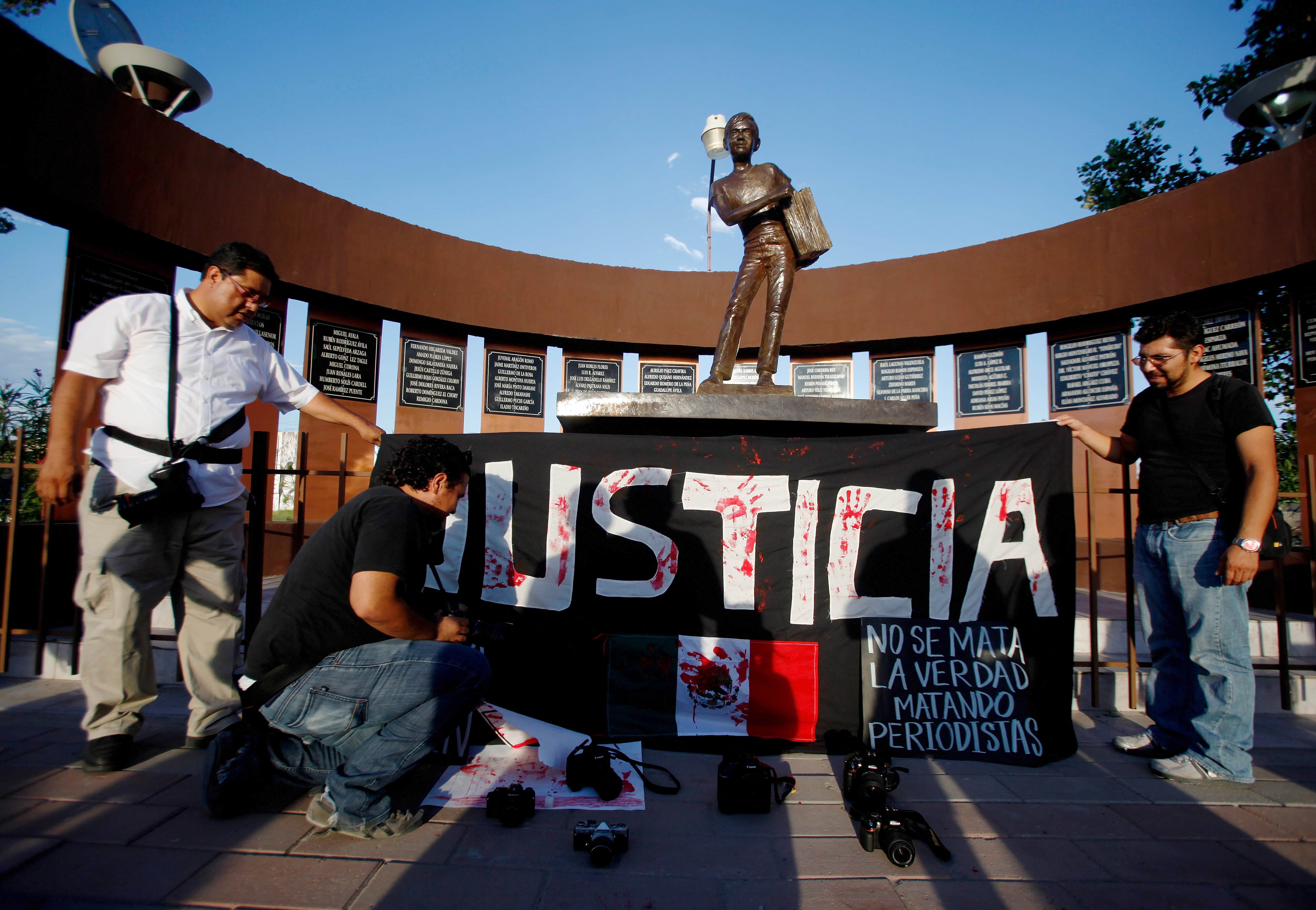Reporters Without Borders hails a new law protecting human rights defenders and journalists now in effect in Mexico’s federal district. The law is the fruit of several years of consultation.
This statement was originally published on rsf.org on 14 August 2015.
Reporters Without Borders hails a new law protecting human rights defenders and journalists now in effect in Mexico’s federal district (Mexico City) but will monitor its implementation closely. It could set an example for Mexico’s other states at a time when working as a journalist is extremely dangerous.
Many journalists rightly fear both for their lives and the future of their profession after the multiple murders of photojournalist Ruben Espinosa, activist Nadia Vera and three other women in a Mexico City apartment two weeks ago.
Called the Ley de Protección a Personas Defensoras de Derechos Humanos y Periodistas del Distrito Federal, the law was promulgated by Mexico City mayor Miguel Angel Mancera on 10 August and is the fruit of several years of consultation and drafting involving civil society representatives, human rights groups, journalists and federal district employees.
It recognizes the promotion and defence of journalism and human rights as activities that are in the public interest, it guarantees the physical, psychological, moral and economic integrity of journalists when they are in danger, and it guarantees the same rights and protection to the families and assistants of endangered journalists.
It also guarantees the same rights and protection for journalists who flee to Mexico City from other regions where they have been the targets of violence or threats. The creation of an emergency fund from which disbursements can be made within 24 hours is also envisaged – above all to provide journalists with food and accommodation in emergencies.
“We welcome this law’s promulgation and we pay tribute to the political will to reinforce the protection of journalists in the federal district,” said Emmanuel Colombié, the head of the Reporters Without Borders Americas desk. “We hope this law will have a snowball effect and will serve as an example for other Mexican states where this type of protection is either non-existent or ineffective. At the same time, we hope it will not just be used for political effect and we urge the authorities to allocate the resources needed for it to function properly.”
After several last-minute changes were made to the law, the project’s civil society participants continue to be concerned about the law’s proper implementation and have made several requests, which Reporters Without Borders supports.
They include:
- A complete commitment by the various levels of the federal district government to achieving the law’s goals, and the possibility of adjusting or modifying the law, within its overall objectives, in regular consultation with civil society.
- Equal representation for civil society members and federal district government members on the committee that oversees the law’s implementation.
- Allocation of sufficient resources and personnel that is qualified and aware of journalistic issues for the implementation of the protection.
- A guarantee that the system of protection will operate in a fully autonomous manner, with its own assets, and the emergency fund will quickly be made available.
According to the tally kept by Reporters Without Borders, a total of 89 journalists have been murdered since 2000 in Mexico, which is ranked 148th out of 180 countries in the press freedom index that Reporters Without Borders published in February.



